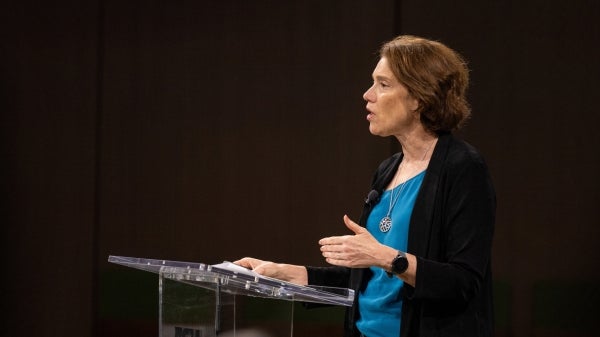Carbon Collect’s MechanicalTree selected for US Department of Energy award

A passive carbon-capture system, based on the research of Klaus Lackner, an engineering professor at Arizona State University and director of the ASU Center for Negative Carbon Emissions, and commercialized by Carbon Collect Inc., based in Dublin, is among six projects being funded in a Department of Energy (DOE) program targeting carbon-capture and sequestration technologies.
The DOE program is providing a total of $12 million to the six projects, with $2.5 million going to the Carbon Collect-ASU team. The projects are creating tools that will increase the amount of CO2 captured by direct air capture (DAC), decrease the cost of the materials used and improve the energy efficiency of the carbon-removal operations.
The Carbon Capture-ASU project will focus on designing three “carbon farms” located in three distinct geographical locations using a commercial-scale passive DAC system that can capture 1,000 tons of CO2 per day.
“This is a significant and pivotal step for our company that will also serve to accelerate our technical program and its research and development efforts,” said Carbon Collect’s Chairperson Gary Dirks, who also is senior director of ASU’s Global Futures Laboratory and the Julie A. Wrigley Chair for Practice of Sustainable Energy Systems at ASU’s College of Global Futures.
“We expect this project to be an important step for the commercialization of a technology that can be scaled to help balance the world’s carbon budget,” added Carbon Collect CEO Pól Ó Móráin. “The award will demonstrate how this technology can contribute to the CO2 drawdown that will be needed to keep global warming in check.”
The MechanicalTree is based on proprietary technology developed by Lackner, a pioneer in the field of direct air capture. It acts like a tree that is thousands of times more efficient at removing CO2 from the air. The “mechanical trees” allow the captured gas to be sequestered or sold for reuse in a variety of applications, such as synthetic fuels, enhanced oil recovery or in food, beverage and agriculture industries.
Unlike other carbon-capture technologies, the MechanicalTree can remove CO2 from the atmosphere without needing to draw air through the system using energy-intensive devices. Instead, the technology efficiently captures carbon as wind blows air through the system from any direction. This makes it a passive, relatively low-cost and scalable solution. If deployed at scale, the technology could lead to significant reductions in the levels of CO2 in Earth’s atmosphere, helping to combat global warming.
Carbon Collect is committed to deploying this technology for gigaton-scale capture across a wide range of geographically diverse settings in the U.S. and abroad, Ó Móráin said.
More Environment and sustainability

Researcher works on changing people's mindsets to fight climate change
Meaningful action to heal the climate requires a complete shift in the way people think and perceive each other, according to an…

NOAA, ASU offer workshop to bridge ocean exploration, education
Oceans are vital to sustaining life on Earth, as they produce over half of the oxygen we breathe and play a crucial role in…

A united front for sustainability and the economy
When four leaders of esteemed learning institutions and the mayor of Phoenix gather in one location at the same time, it’s a tip-…